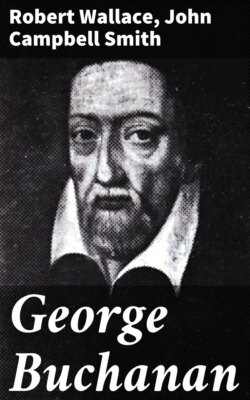Читать книгу George Buchanan - Robert Wallace - Страница 5
Begging Letter-Writer
ОглавлениеHe was often ‘hard up,’ but it does not appear to have depressed his spirits. Indeed, he is never sprightlier, more epigrammatically witty, or more genially humorous than when he is what some of us might call ‘begging’ from some wealthy friend who could appreciate his genius and accomplishments. Here, for instance, is a ‘begging letter’ to Queen Mary, in the days when they were still friends, and read Livy, and doubtless indulged in fencing-matches of wit together:—
‘Do quod adest: opto quod abest tibi: dona darentur
Aurea, sors animo si foret æqua meo.
Hoc leve si credis, paribus me ulciscere donis:
Et quod abest, opta tu mihi: da quod adest.’
Which may be literally, or nearly so, according ‘to the best of my knowledge and belief,’ as the affidavits say:—
‘To you I give what I do have: for you I wish what you don’t have:
Golden, indeed, would be my gifts, were Fortune equal to my will.
If you should chance to think this levity, in equal levities have your revenge:
For me wish you what I don’t have: to me give you what you do have.’
Dr. Hume Brown puts it neatly into rhyme thus:—
‘I give you what I have: I wish you what you lack:
And weightier were my gift, were fortune at my back.
Perchance you think I jest? A like jest then I crave:
Wish for me what I lack, and give me what you have.’
Take another in the same strain:—
‘Ad Jacobum, Moraviæ Comitem.
‘Si magis est, ut Christus ait, donare beatum,
Quam de munifica dona referre manu:
Aspice quam faveam tibi: sis ut dando beatus,
Non renuo fieri, te tribuente, miser.’
‘To James, Earl of Moray.
‘If, as Christ says, it is more blessed to give than to receive gifts from a munificent hand, just see what a favour I am doing you: that you may be blessed in giving, I am ready to play miserable receiver to your happy donor.’
Or, to cite Dr. Brown again:—
‘It is more blest, saith Holy Writ, to give than to receive:
How great, then, is your debt to me, who take whate’er you give!’
With equally humorous familiarity he sends in an application, ‘Ad Matthæum Leviniæ Comitem, Scotiæ Proregem’ (To Matthew, Earl of Lennox, Regent of Scotland’). I quote only the concluding couplet:—
